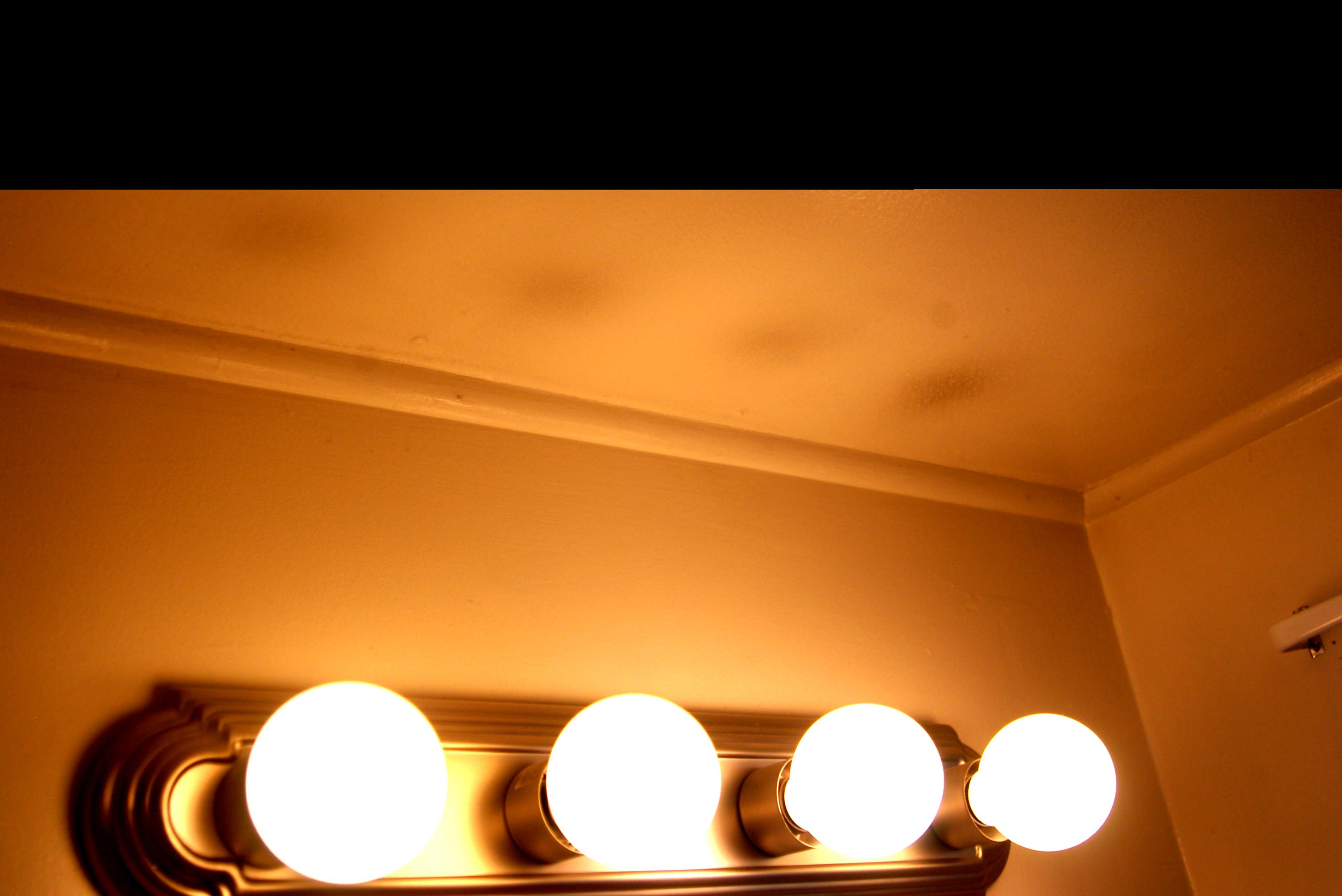Ceiling Ghosting Caused by Incandescent Lightbulbs
This image shows the effect of air turbulance above
incandescent lightbulbs. The heat of the bulbs
helps generate soot but it is the convective flow to the ceiling that causes the
turbulance that deposits the small particles
on the ceiling.
Macrophotograph
Definition/Function:
"Ghosting" refers to the darkening of areas on the walls or ceiling due to the
deposition of particles at
specific locations. These locations are typically areas of local air turbulence or areas
where the distance
between two surfaces is small so that the net force of diffusion on small particles is
toward the surfaces.
In this case the darkening is due to the turbulance where the convective flow of the hot
air created by the
lightbulbs meets the ceiling. Incandescent lightbulbs are hot enough that they also
create some soot.
Significance in the Environment:
Characteristic Features:
Associated Particles:
References:


